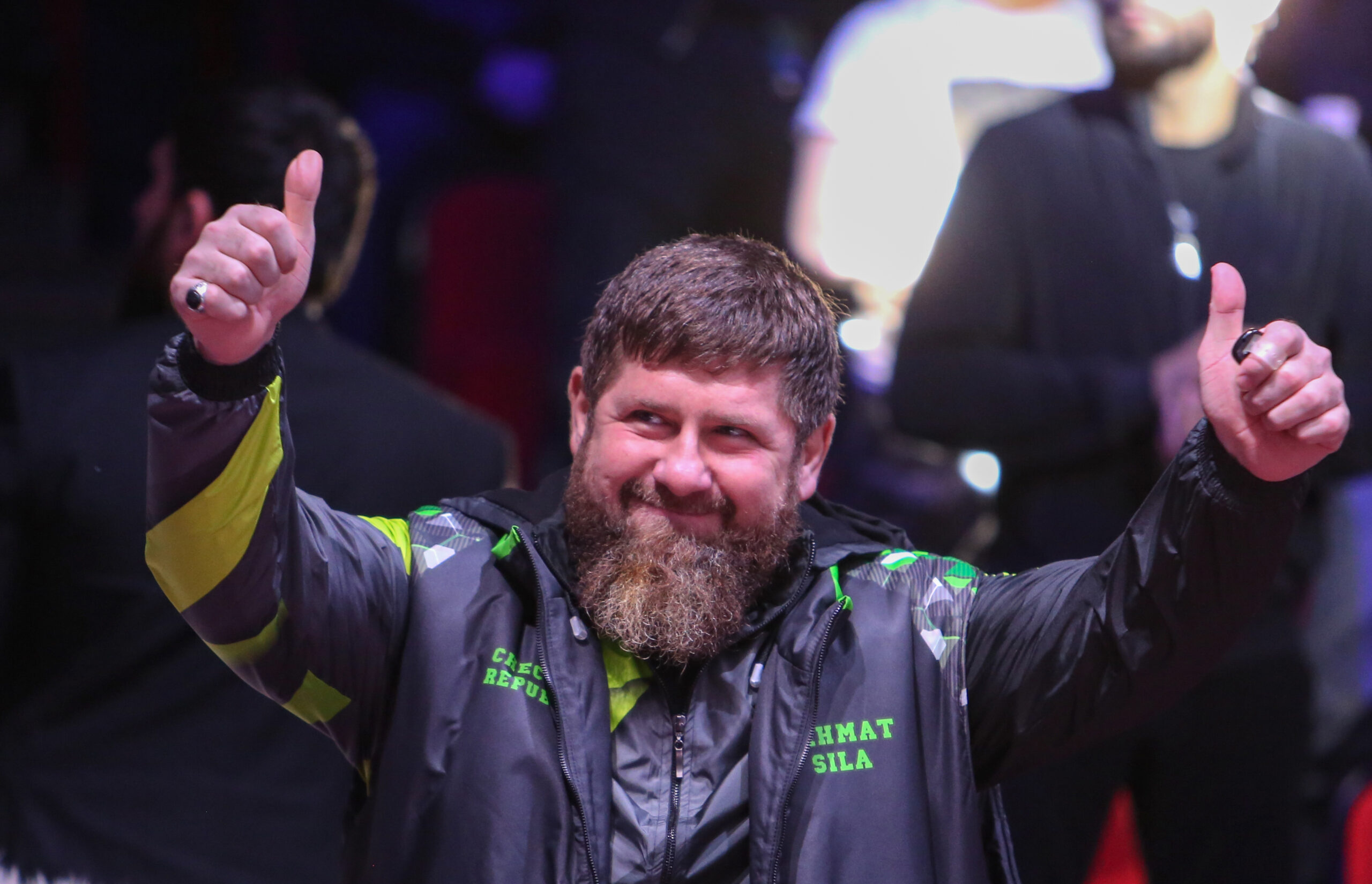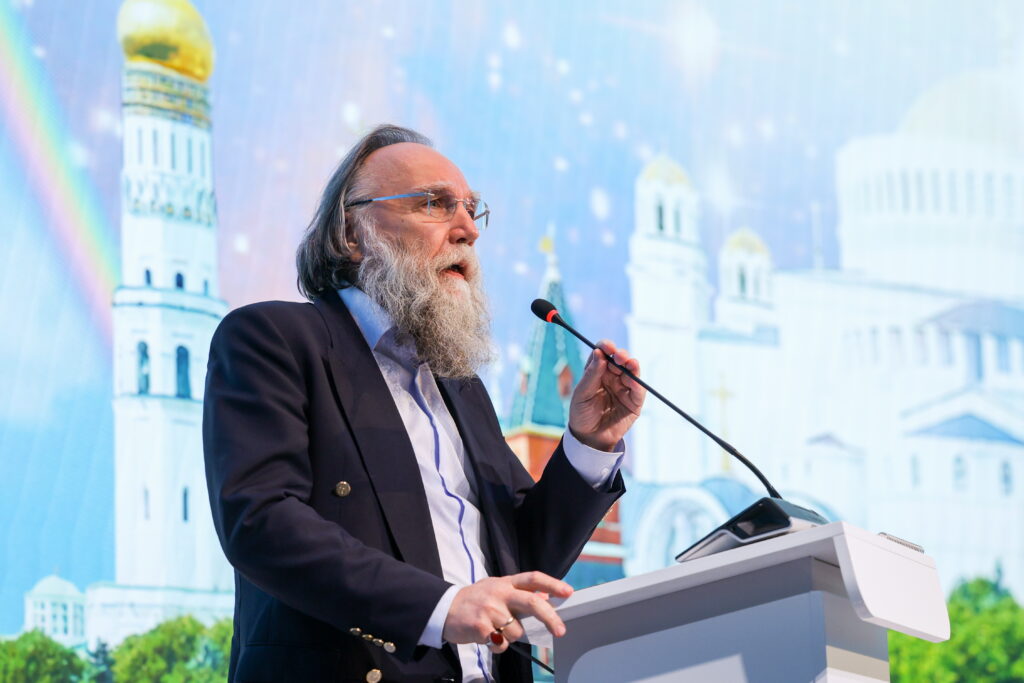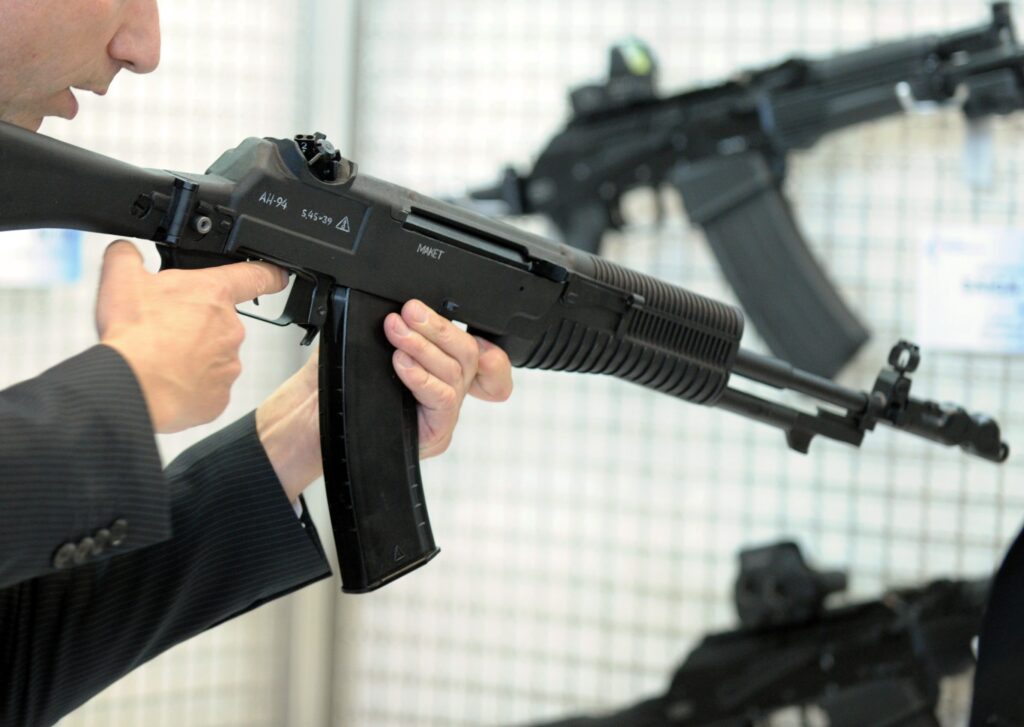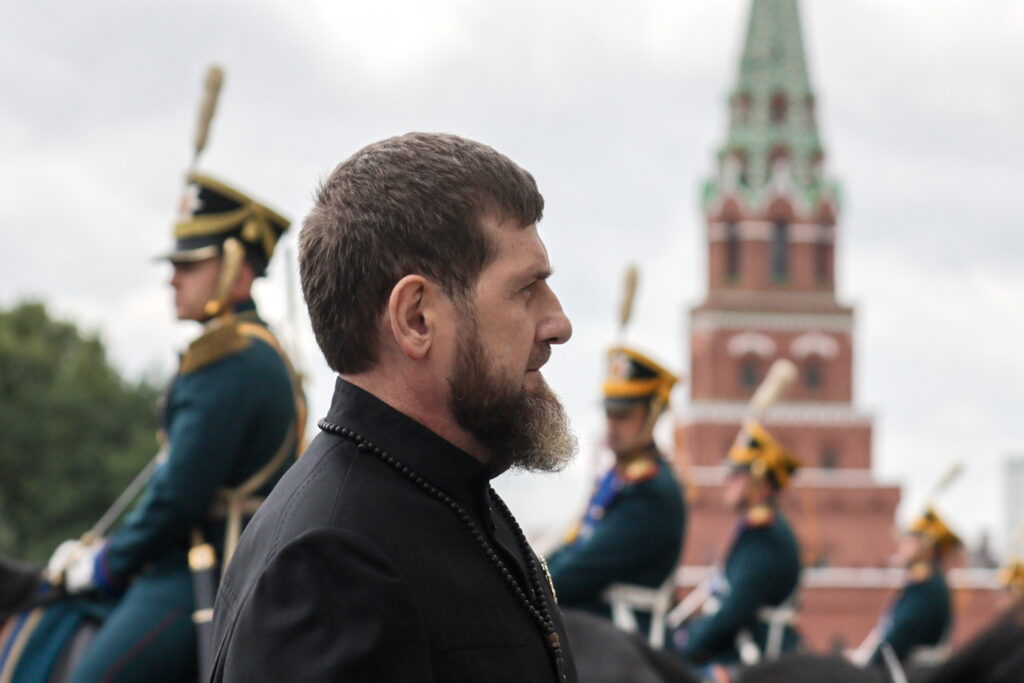When President Putin reinstituted control over Chechnya in 2000, he appointed former Chief Mufti of Chechnya Akhmat Kadyrov as its president. Following Akhmat’s assassination in 2004, his heir apparent was his son Ramzan, who succeeded him first as the informal head of the republic, then formally from 2007 onwards. If Ramzan is able to decide, Chechnya’s future leader will once again be Akhmat Kadyrov, albeit Ramzan’s eldest son.
Over the past year, the current head of Chechnya has sought to shore up his standing at the federal level while furthering the integration of Chechnya’s next generation of government officials, who are mostly his children or the children of his inner circle. Ramzan’s wish for his son to succeed him has become increasingly apparent over the past year, even if any succession timeline is still far from clear. In recent months, however, Akhmat Ramzanovich’s emergence as heir apparent has proceeded at a surprisingly rapid pace. This acceleration accompanies an increasing number of rumors about Ramzan’s deteriorating health. The latest report pointing to a severe decline in Ramzan’s health was by Novaya Gazeta’s legendary Chechnya-watcher Elena Milashina. As such, it is important to understand the dynamics surrounding Akhmat Ramzanovich’s integration into the Kadyrov regime. This essay outlines his rise and the already clear obstacles to dynastic transition in Chechnya.
Joining the regime
Akhmat Kadyrov was born on November 8, 2005, days before his father was appointed Chechnya’s Prime Minister. Roughly a decade and a half later, Ramzan’s eldest son received his first post in his father’s regime. At age sixteen, he was appointed as the head of all youth organizations in the Chechen Republic. Upon receiving this post, he met with Russian Education Minister Sergei Kravtsov in Moscow. Kravtsov voiced his support for Akhmat to become the republic’s representative for the all-Russian public-state movement of children and youth «Movement of Firsts» [Dvizhenie pervykh], a position he now holds. Akhmat also serves as an «Advisor to the Head of Chechnya.» What precisely he advises his father about is unclear.
That Kadyrov’s eldest son would be chosen to succeed him is not surprising. To be governor, however, requires one to be twenty-five years old, meaning seventeen-year-old Akhmat is still almost a decade away from leadership. Despite being underage and far from being legally allowed to lead, Akhmat’s public profile is being bolstered by whatever means his father can utilize, as the Chechen governor strives to build his apparent successor’s status.
Last October, Kadyrov’s three eldest sons «deployed» to Ukraine—they were never close to the frontline and were probably even further back than most kadyrovtsy have been located. During their trip, the Chechen governor claims his sons took Ukrainian soldiers prisoner, bringing them to Grozny to present to their father. The substantive activities during the trip, however, were primarily for Ayshat Kadyrova, Chechnya’s Minister for Culture and Ramzan’s eldest child, with her brothers only serving as her armed escorts. The boys’ alleged time in combat, however, served and serves an important purpose for the regime. In the wake of anti-mobilization protests in Chechnya, the trip gave Kadyrov the optics and narrative that he had sent his sons to war, rhetorically undermining the protesters’ narrative of ‘why our sons and not yours?’ The reality, of course, did not in fact support the regime’s narrative, as the boys had not actually fought. Beyond undermining protesters’ grievances, Kadyrov’s sons’ «deployment» serves a greater purpose. Their trip establishes a legitimizing narrative of them as soldiers, playing into macho stereotypes and expectations. Whether or not the public believes such a narrative, it is important in Ramzan’s mind for preparing his sons to one day rule Chechnya, particularly Akhmat. Ramzan’s eldest son was featured more prominently than the other sons, frequently in a place of prominence behind Ayshat, where he is most visible.
March was a monumental month for Ramzan’s heir apparent. It began with a meeting between Akhmat and President Putin, on the eve of Akhmat’s wedding. While the pretense for the meeting was to discuss youth political engagement, the other listed highlights reveal more. The most telling part of their conversation was that Putin, the Kadyrov family’s long-time patron, apparently taught Akhmat «which principles [his grandfather] was guided by and how he saw the future peaceful life, what he dreamed and thought about, how their friendship began and how their meetings went.» This description of the meeting suggests that Putin was explaining to Akhmat in detail the foundations of the relationship between the Russian president and the Chechen governor. Ramzan even claims that «Akhmat’s Path”—the highly mythologized moral and ideological guidelines supposedly established by his father—was explicitly mentioned by the Russian president. Ramzan posting of these comments suggests not just that he has selected Akhmat as his definite successor, but that Putin has agreed to the choice and supports Akhmat’s ascension. Additionally, President Putin allegedly concluded the meeting by congratulating Akhmat on his impending wedding that weekend, essentially granting an underage marriage his blessing.
Akhmat Ramzanovich has also been overseeing various activities of the Akhmat Kadyrov Fund, which has been a primary mechanism for Ramzan’s war contributions, as well as sending humanitarian aid to Syria after the earthquake in early February. The Chechen governor posted a video on March 16 depicting his son assisting the loading of aid onto a plane at Grozny International Airport. Akhmat was accompanied here by quite a retinue: the Minister for National Policy, External Communication, Press and Information Akhmed Dudaev; Minister for Physical Culture, Sport, and Youth Isa Ibragimov, and Commander of the Akhmat Kadyrov Police Regiment Zamid Chalaev. Such a high-profile entourage for a reasonably minor PR stunt is quite telling, ensuring these officials appear tied to Akhmat.
To close out the month, Akhmat embarked on an official trip to Azerbaijan, focusing on economic ties and religion. Ramzan’s heir apparent met with Minister of Ecology and Natural Resources Mukhtar Babaev, Minister of Economics Mikail Dzhabbarov, and members of the «Alyat» Free Economic Zone (AFEZ). Akhmat also spent time with the Mufti of Azerbaijan and Chairman of the Spiritual Administration of Muslims of the Caucasus (DUMK) Sheikh ul-Islam Allakhshukyur Pashazade, talking about the sheikh’s friendship with his grandfather, and enjoyed iftar with Samed Gurbanov, Chairman of the Board of the Azerbaijan-Russia Business Council. Akhmat’s visit to Azerbaijan, his first official international mission, was reasonably high-profile considering he is a minor and has yet to assume a position in his father’s government. The choice of destination was somewhat strange, as Azerbaijan has not previously been a fixture in Kadyrov’s paradiplomacy. As such, it only further underlines the importance of the trip, with the purported future leader of Chechnya engaging a new partner. The final noteworthy aspect is that, during the AFEZ meeting, Akhmat touted Chechnya’s investments facilitated by the Sheikh Zayed Fund. This fund was created in 2017 by Ramzan and then-President of the UAE Sheikh Khalifa bin Zayed Al Nahyan and has notably partnered with companies controlled by Ramzan’s children. Akhmat’s newly public engagement with financial channels between the Kadyrov regime and one of its closest international partners—again, with no real justification to do so as he is not a government official—is further evidence of his rapid integration into governance.
Finally, the day after returning from Azerbaijan, Ramzan had his son join him on the tarmac to welcome Investigative Committee Chairman Aleksandr Bastrykin. It is unclear whether Akhmat attended the actual meetings or was only present for Bastrykin’s arrival. Regardless, this closed out Akhmat’s busy month with one more high-level event. The flurry of activities since February 2022, peaking this past March, illustrate how Akhmat is being prepared to succeed his father, and on a seemingly accelerating timeline.
Joining families
Since Akhmat’s wedding not only serves as a significant milestone on his path to manhood, but on his path to leadership, it requires closer examination. This is even more so because it intimately connects another family to the Kadyrovs in a way that the husbands of Ramzan’s daughters cannot duplicate in a male-dominated, and thus son-favored, society.
On March 4, the day after his meeting with Putin, the eldest Kadyrov son was married. Although minimal information is publicly available about Akhmat’s wedding, with Ramzan reportedly instituting an informational blackout, what is known indicates it was an enormous affair. Public areas were closed, a massive entourage formed the wedding procession, and Russian rapper Timati attended—Timati has previously associated with the Kadyrovs, travelling on their private jet. As a minor, the wedding is illegal under Russian and Chechen law, with Akhmat not meeting any of the exceptions allowing such a marriage, such as imminent deployment.
Chechen opposition groups report that Akhmat Ramzanovich married Tamila Makhmatova. To be so intimately tied to the Kadyrovs guarantees that she and her family were hand-picked by the Chechen leader. So, who are Akhmat’s new in-laws? The Makhmatov family, on the surface at least, is a standard pro-regime family. They appear to be from the Benoi teip, the Chechen clan dominated by the Kadyrov family. Tamila is the daughter of Grozny City Duma member Nasrudi Makhmatov, who chairs the Committee for Construction, Housing and Communal Services, and Ecology. One of their sons, Magomed, reportedly works as a policeman in Grozny and has tortured people. Nasrudi claims he avoided participating in either of the wars for Chechen independence, a fact that, despite Kadyrov’s own historical ties to the Ichkerian struggle, would be considered to buttress the Makhmatovs’ loyalty. Prior to joining the Grozny City Duma in 2021, he was the director of Grozny’s «Vodokanal» municipal unitary enterprise (MUP), which is operated out of the mayor’s office and partially financed by «Kapital“—run by Bislan Khuchiev, brother of Chechnya’s Prime Minister Muslim Khuchiev—and Chechenenergo. In 2015, Makhmatov, then director of Vodokanal, reported nearly 1.4 million rubles in income, nearly 500 000 rubles more than the next highest reported income and significantly higher compared to the median (440 400) and average (509 747) incomes for MUP directors that year. He and his wife, Elita Al’temirova, also reported additional income and property holdings significantly greater than other directors and their families. Some of this wealth can be attributed to the Makhmatov’s regular business ventures.
The main family business has always been dentistry—the family owns three clinics. These businesses, however, suggest that all may not be as it seems. Benodent, Vaident, and Biladent are all registered at the same address, but only Benodent has a public presence. Their registered activities are further revealing. All three are primarily registered for dental practice. Benodent is also registered for construction of residential and non-residential buildings, construction of engineering structures not included in other groups, retail sale of medicinal products in specialized stores, and retail sale of products used for medicinal purposes and orthopedic products in specialized stores. Altogether, a couple of normal activities and a couple of strange ones. Vaident and Biladent differ drastically. Both are registered for coke production; production of other products from gypsum, concrete, or cement; production of construction metal structures, products, and their parts; and construction of highways and motorways. None of these make sense for dentistry, but they do fall within the purview of Nasrudi’s work on the Grozny City Duma. To say the least, this is suggestive of corruption.
Logically, the family Ramzan would choose to marry his son into would be either a powerful family not truly aligned with the Kadyrovs in order to bring it into the fold or an allied family with something significant to contribute to the Kadyrov regime. As the Makhmatovs do not seem to fit the profile of the former, it makes sense that they would be the latter. The family—whose three dental clinics suspiciously coexist in the same place—has gradually become integrated more closely with the main families of the Kadyrov regime elite, first through Grozny’s Vodokanal, then in the Grozny City Duma, and now through marriage. Alas, the opacity surrounding the regime’s activities makes it difficult to determine precisely between whom exists corrupt ties and to fully ascertain the extent of such connections.
Troubled succession?
Chechnya already witnessed one dynastic transition from Akhmat-Khadzhi to Ramzan, albeit with a brief interlude of Alu Alkhanov running out the clock until Ramzan was legally eligible. The potential transition from Ramzan to his son will definitely not fully resemble his father’s ascension. Akhmat Ramzanovich would face different problems than his father. Most prominent among these differences is that Ramzan is alive and there is no war. Further, Akhmat has several brothers not much younger than himself, with the second and third sons also featuring prominently in wartime propaganda. While this presumably would pose a classic challenge to the eldest’s «right to rule,» there is more of a risk from their reckless behaviour. Adam, aged fourteen at the time, allegedly killed three people in two immediately consecutive car crashes, according to Chechen activists and human rights organizations. Some reports claim he was high on meth at the time. One of the Kadyrov children’s bodyguards Murad Agmerzoev and Chechen Deputy Prime Minister for Youth Policy and Sport Abdul-Kerim Edilov, who effectively served as the babysitter of Ramzan’s sons, were reportedly executed for their connections to narcotics dealing, including allegedly to Adam. Zelimkhan («Ali»), a year older, displays moderately less dangerous behavior, too busy pursuing a fraudulent fighting career. In other words, Akhmat’s next eldest brothers appear content to enjoy their privileges as second and third sons, relatively devoid of responsibilities. Others would be more likely to launch a leadership challenge, such as Khas-Magomed Kadyrov, Akhmat’s cousin and the mayor of Grozny, whose ambition had to be checked by the regime following his meteoric rise. While his brothers may be unlikely to pose a direct threat to Akhmat’s «right» to rule, other relatives may, and his brothers can still prove destabilizing.
Besides leadership challenges, there is a risk of a return to violence in Chechnya, depending on the circumstances of the potential succession. Demonstrations of resistance have increased over the past year, including two armed incidents. Perhaps the biggest risk to the Kadyrov regime is the latent threat of a population that despises it, waiting for an opportune moment for revenge. Popular resistance, armed or unarmed, is a phenomenon for which Ramzan has recently been preparing. Similarly, Akhmat will likely face resistance at the federal level, as senior siloviki and businessmen will view the transition as a chance to regain a foothold in the republic, having been shut out by Ramzan. Indeed, these two fronts could combine, with external actors sponsoring ambitious relatives or popular insurgent groups, in order to destabilize the Kadyrov regime.
That Akhmat Ramzanovich will follow in his father’s footsteps is far from guaranteed. However, should this course of action be enacted sooner rather than later, it will in all likelihood initiate a period of chaos in Chechnya.










